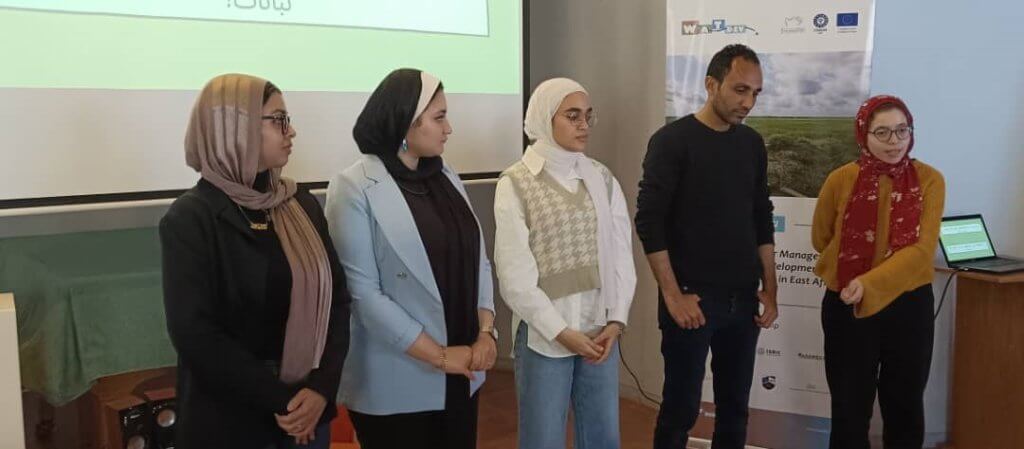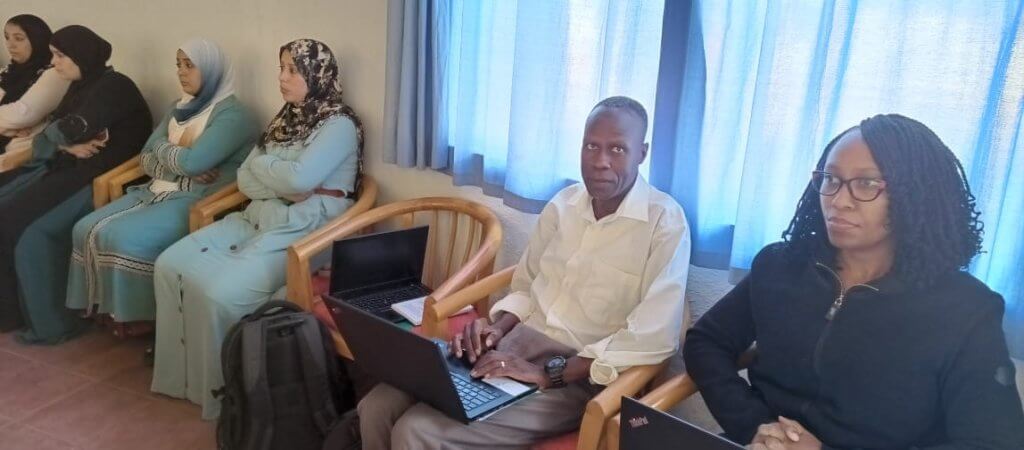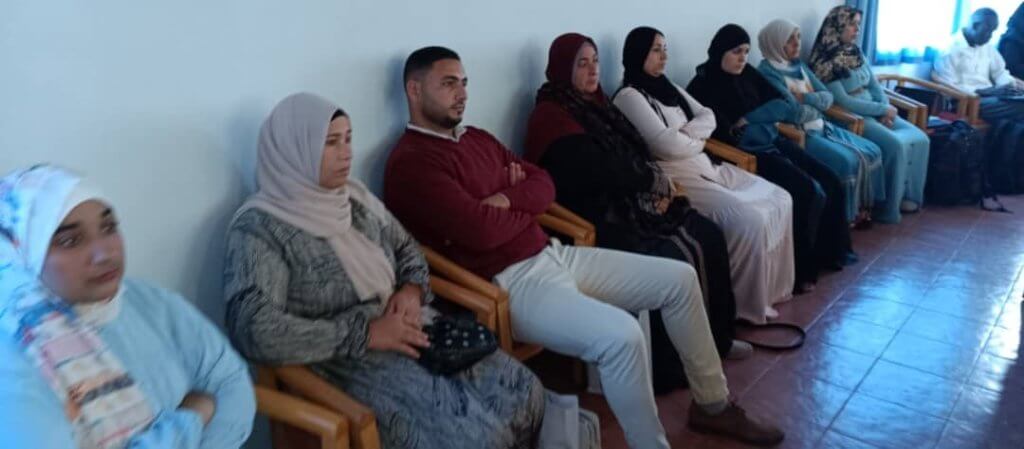ASARECA, Heliopolis University Conduct Farmer Training in Rural Egypt
BY BEN MOSES ILAKUT
CAIRO, EGYPT: ASARECA on February 4 and 5, 2024 joined Egyptian partners, Heliopolis University, and the International Soil Reference and Information Centre (ISRIC) in an awareness and dissemination workshop meant to share knowledge acquired by selected trainers of trainees during their training with farmers, the local communities and technical teams supporting project implementation.
The bi-directional event was held in Sekem Farm in Belbeis, Desert Road, and attracted 58 partners. It was aimed at enabling farmers to integrate acquired knowledge with their traditional knowledge and competencies as well as to offer the local partners and the task lead partner, ASARECA, the opportunity to carry out a participatory feasibility and sustainability analysis for Best Management Practices for simulation and application in the project areas.

Field based training
The field based training comes after a training of trainers was completed for local partners, Heliopolis University, where five youth were trained to disseminate knowledge on composting and use of manure, intercropping trees with crops, and water users associations, among other Best Management Practices being piloted in Egypt.
Discussion of issues
Through the awareness and dissemination workshop, farmers, other relevant stakeholders and local communities who are involved in implementing the Best Management Practices and Innovations, inquired into issues of interest regarding intercropping, use of manure, water management and benefits of combinations of Best Management Practices.
According to Prof. Wael Khairy, the coordinator of the Project, “Most of the participants in the workshop are youth, women, and smallholders’ organizations including local technicians and practitioners engaged in agricultural development and assistance to farmers, and community stakeholders engaged in Best Management Practices implementation.”
Heliopolis University for Sustainable Development Faculty of Engineering, is leading the project in Egypt with the aim to serve the rural community within the university’s scope in Belbies in particular, by developing sustainable applied solutions that reduce competition for water and clean energy among farmers.
The training in Egypt follows a similar event where a Training of Trainers (ToT) and Capacity Building on Best Management Practices was held in Italy on 11-16 December 2023. It is this same training model that is being out scaled in project implementation countries of Egypt, Kenya and Ethiopia.

History of training under WATDEV
The training also builds on awareness sessions implemented with local stakeholders between June and July 2023 where perceptions of stakeholders on Best Management Practices were sought and documented.
ASARECA supporting farmers
In remarks, ASARECA’s Acting Head of Programmes, Mr. Moses Odeke, who is currently coordinating the initiative at the regional level, explained that ASARECA is supporting farmers to access relevant soil and water management technologies, adapt and share the knowledge on Best Management Practices.
“Through this exercise, we implementing participatory approaches which involve discussing, evaluating and agreeing with stakeholders, most of them farmers, on the feasibility indicators that best describe their socio-economic and environmental contexts,” Mr. Odeke noted.
CIHEAM Bari represented
Dr. Gaetano Ladisa from the International Centre for Advanced Mediterranean Agronomic Studies-Institute of Bari (CIHEAM Bari) joined in the discussion online. Dr. Gaeteno, who is also the Administrative Lead of the project said the meeting was a very important opportunity to collect data from the country, especially feedback from farmers and communities in Sekem on the progress, successes and challenges in utilising the Best Management Practices. “Through our engagement with farmers, their needs get clearer. This is what has enabled us to achieve the objectives of the project to the current extent,” Dr. Gaetano noted.

Modelling for best results
To ensure that the Best Management Practices produce the best results, the project has incorporated the practice of integrated modelling for optimum soil and water resources management. Modelling is premised on the common but crucial knowledge that the challenge in agricultural productivity is a combination of factors including soil quality, water, and climate change amid the increasing demand for food.
Speaking on the first day of the two-day meeting, Dr. Luuk Fleskens from the University of Wageningen, who is coordinating the modelling activities under ISRIC, explained the importance of water scenario modelling, which has been mainstreamed into the project.
“Modelling addresses actual changes to productivity by modelling practical solutions to inform decisions around water management and irrigation, timing sources of water, its quality and distribution quantities, calendar events such as sowing, irrigation, fertilizer use and management of organic matter,” Dr. Luuk noted.
About WATDEV
The Climate Smart Water Management and Sustainable Development for Food and Agriculture in North-East Africa (WATDEV) is implemented by CIHEAM-BARI, Italy in collaboration with European partners (SKYKE, CNR and ISRIC) and African partners to promote innovations at the water energy and agriculture nexus to enhance economic development and resilience to climate change in Kenya, Ethiopia, Sudan and Egypt.
In Ethiopia, the Project is implemented in partnership with the Water and Land Resource Centre, Addis Ababa University; in Kenya, it is implemented in collaboration with the Kenya Agriculture and Livestock Research Organization (KALRO) and in Sudan, it is implemented in collaboration with the Water Research Centre. It brings together academia, policy, and private sector to create an environment conducive to agricultural innovation and modern transformation.
ASARECA is responsible for coordinating the implementation of the project activities in the four African partners, who mainly are part of its wide constituents in the National Agricultural Research Systems (NARS). The project is supported by DG International partnerships (INTPA) of the European Union under the Development of Smart Innovation through Research in Agriculture (DeSIRA) initiative and led by the Italian Agency for Development Corporation. (AICS).
